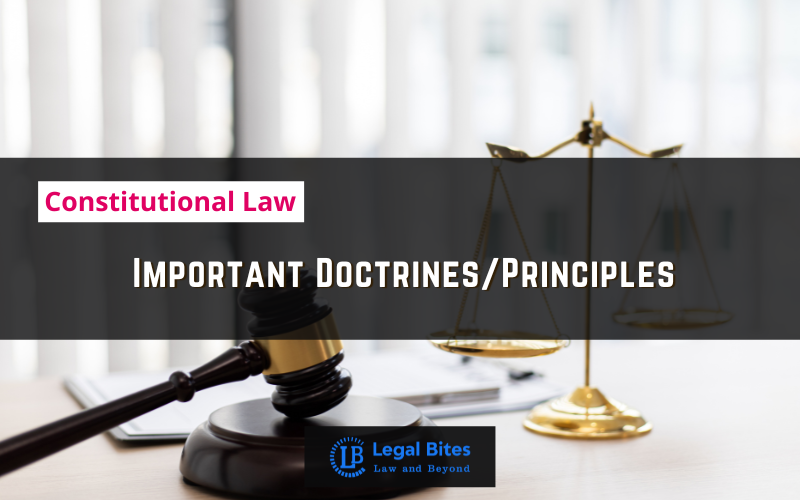Explain what is meant by the expression “Failure of constitutional machinery in a state under Article 356 of the Constitution of India”. Which situation will fall and which will not fall within the expression? Explain.
Question: Explain what is meant by the expression “Failure of constitutional machinery in a state under Article 356 of the Constitution of India”. Which situation will fall and which will not fall within the expression? Explain. [BJS 2000, UPJS 2015] Find the answer to the mains question only on Legal Bites. [Explain what is meant by the expression… Read More »
;
Question: Explain what is meant by the expression “Failure of constitutional machinery in a state under Article 356 of the Constitution of India”. Which situation will fall and which will not fall within the expression? Explain. [BJS 2000, UPJS 2015] Find the answer to the mains question only on Legal Bites. [Explain what is meant by the expression “Failure of constitutional machinery in a state under Article 356 of the Constitution of India”. Which situation will fall and which...
Question: Explain what is meant by the expression “Failure of constitutional machinery in a state under Article 356 of the Constitution of India”. Which situation will fall and which will not fall within the expression? Explain. [BJS 2000, UPJS 2015]
Find the answer to the mains question only on Legal Bites. [Explain what is meant by the expression “Failure of constitutional machinery in a state under Article 356 of the Constitution of India”. Which situation will fall and which will not fall within the expression? Explain. [BJS 2000, UPJS 2015]
Answer:
Article 356 of the constitution empowers the President to issue a proclamation imposing president’s rule on receipt of a report from the Governor or suo motu, if he is satisfied that a situation has arisen in which the Government if the state cannot be on in accordance with the provisions of the constitution. Such a situation is called ‘Failure of constitutional machinery.
Article 356 states, “if the president on governor’s report, or otherwise is satisfied that a situation has arisen in which government of a state can’t be carried on in accordance with the constitutional provisions, he may issue a proclamation to that effect [cl. (1)].”
The following consequences ensue on the issuance of a proclamation under Article 356(1):-
(1) President may assume to himself all or any of the functions of the state government, or powers vested in a governor, or anybody or authority in the state other than state legislature.
(2) President may declare that powers of the legislature of state shall be exercisable by parliament.
(3) The president may make such incidental and consequential provisions as may appear to him to be necessary or desirable for giving effect to the object of proclamation.
The president cannot, however, assume to himself, any of the powers vested in the high court, or to suspend any constitutional provision relating to it [proviso, Article. 356(1)].
The proclamation issued under Article. 356(1) may be revoked or varied by the president on a subsequent proclamation [Article. 356(2)].
It is to be noted that under Article. 356 the president acts on a report of the governor or on information received otherwise. This means that the president can act even without the governor’s report. This is justified in view of the obligation of the centre imposed by Article 355 to ensure that the state government is carried on in accordance with the constitutional provisions. In view of the centre’s ultimate responsibility to protect the constitutional machinery of the states, the framers thought it proper not to restrict the centre’s action merely on the governor’s report. The governor might not sometimes make a report.
Article 365 also provides that where any state failed to comply with or to give effect to union directives; it shall be lawful for the president to hold that such a situation has arisen in which the state government cannot be carried on in accordance with the constitutional provisions.
Important Mains Questions Series for Judiciary, APO & University Exams
- Constitutional Law Mains Questions Series Part-I
- Constitutional Law Mains Questions Series Part-I
- Constitutional Law Mains Questions Series Part-II
- Constitutional Law Mains Questions Series Part-IV
- Constitutional Law Mains Questions Series Part-V
- Constitutional Law Mains Questions Series Part-VI
- Constitutional Law Mains Questions Series Part-VII
- Constitutional Law Mains Questions Series Part-VIII
- Constitutional Law Mains Questions Series Part-IX
- Constitutional Law Mains Questions Series Part-X



